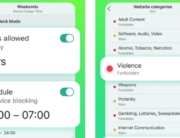Merging companies that are public distribute to varied reviews before shutting a deal.
Drew Angerer/Getty Photos News/Getty Images
More Articles
Being a stock investor, you might get an offer to “tender your stocks” if an investor expands an offer purchasing an organization’s outstanding securities from the investors. The investor sweetens the offer typically by providing reasonably limited – an increased cost compared to the current business’s stock cost. That you do not sell your shares, you may stand to make a bigger profit (and in a much quicker time frame) if you accept the deal although you can refuse the tender offer, which means. You would have received had you tendered them up-front if you don’t tender your shares, you’ll likely receive the cash or stock. However in the situation of the merger of purchase, you will not get re payment before the purchase or merger https://besthookupwebsites.net/rate-my-date/ is complete, that could just just take a bit.
Although an individual or organization may expand a tender offer to buy another business’s securities, a publicly exchanged business could also expand a tender offer buying back once again its very own outstanding securities.
Understanding a Tender Offer
A tender offer happens when an acquiring company provides to get another ongoing business, the goal, at a specified price. The tender offer requires the purchase associated with greater part of a business’s outstanding stocks during a period that is defined of. For the tender offer to achieve success and investors to get the purchase price provided, investors must remit a specified portion of outstanding stocks.
Organizations frequently develop through mergers and purchases. These deals include the change of stock or cash for current stocks into the target business. Known reasons for purchases can consist of expanding market footprint to product that is broadening solution offerings to gaining brand brand brand new circulation or product product sales stations. Because bigger companies that are public have scores of outstanding stocks and thousands of investors, organizations require investors to make in, or tender, their shares.
Tendering Your Stocks
Whenever you tender your stocks, your body or electronically indication documents supplied by your brokerage company by which you consent to remit, or start, all your stocks. Within the uncommon occasion you must mail in the stock certificates to the designated address that you actually have stock certificates in your possession. In a money purchase, once you remit your shares, you will get money during the purchase cost per share. In a stock purchase, you obtain an agreed-upon quantity of stocks when you look at the acquiring company.
Finishing Your Deal
If you fail to tender your stocks, you won’t get any repayment, in money or stock, before the acquiring business completely completes the acquisition or merger. As soon as a company that is acquiring its target function with the most important appropriate and regulatory hurdles, they’re going to announce a conclusion time period. When just small dilemmas stay, the firms will announce the conclusion date, which legitimately finalizes the offer.
With respect to the complexity, this approval procedure could just take many weeks to a lot more than a 12 months. When the organizations finish the acquisition, throughout your brokerage company, you certainly will get money or stock for the stocks during the tender offer cost.
Evaluating Other Available Choices
You will simply retain the shares you owned before the tender offer was made if you did not tender your shares and the merger or acquisition fell through. Some takeovers may be hostile, meaning the board did not approve the acquisition although institutional investors make up the bulk of investors in a publicly held corporation.
Some companies have special provisions that require as much as 80 percent of shares to be tendered for the deal to close with hostile transactions. In this situation, if you should be and only the offer, you almost certainly wish to tender your stocks. Failing continually to do this boosts the danger of the offer perhaps perhaps maybe perhaps not shutting, although, admittedly, until you hold a substantial wide range of stocks, the increased danger is extremely little.






